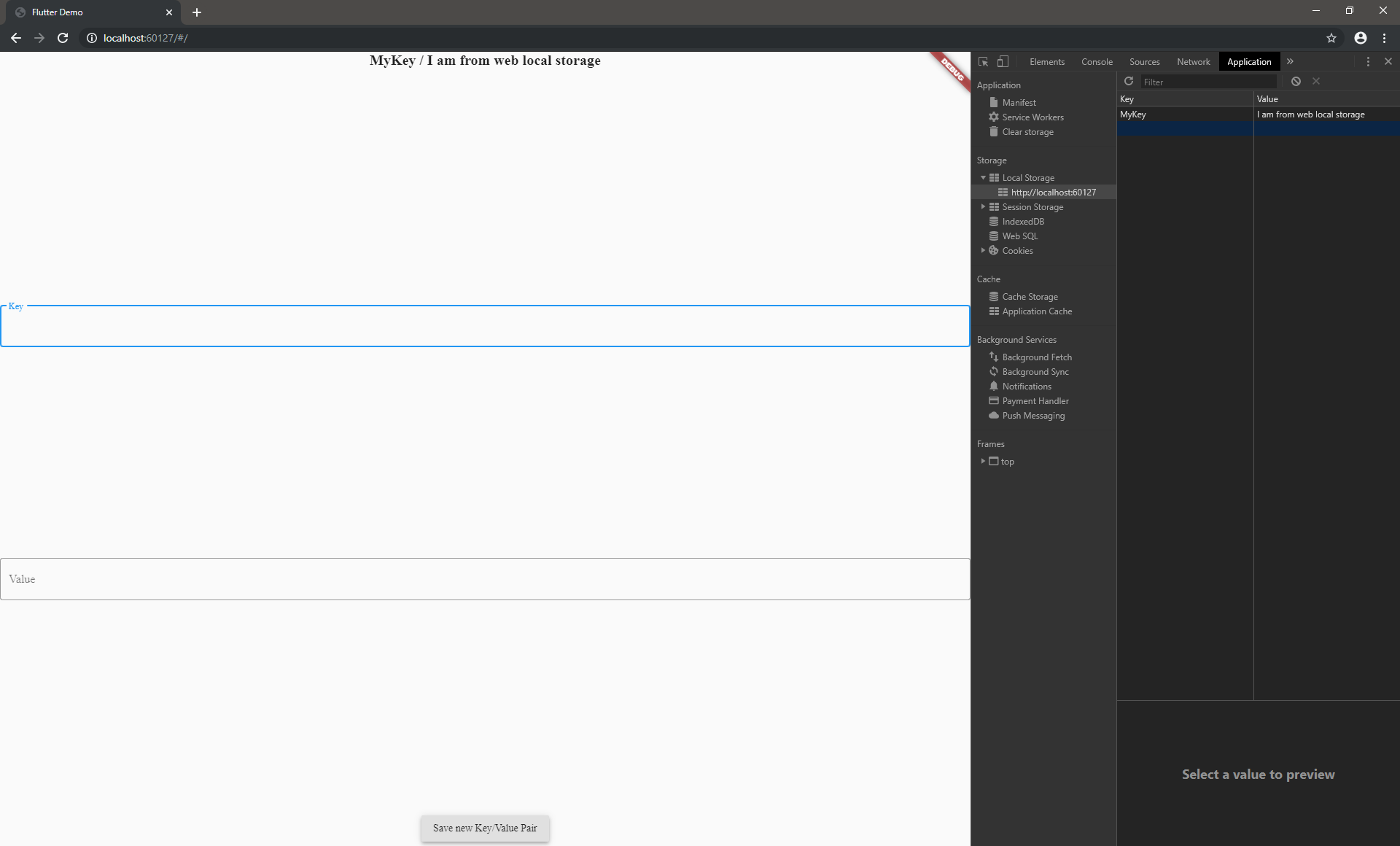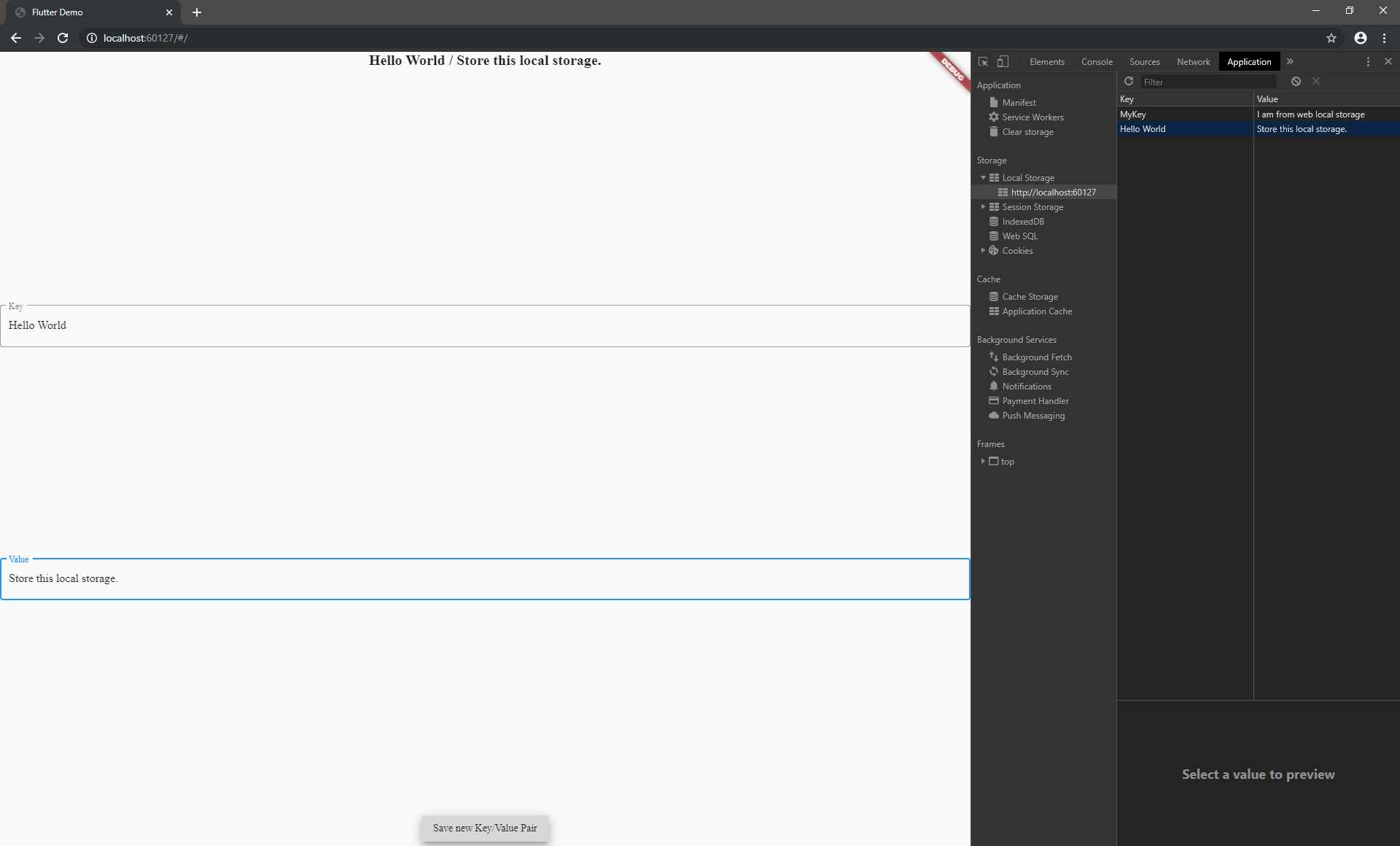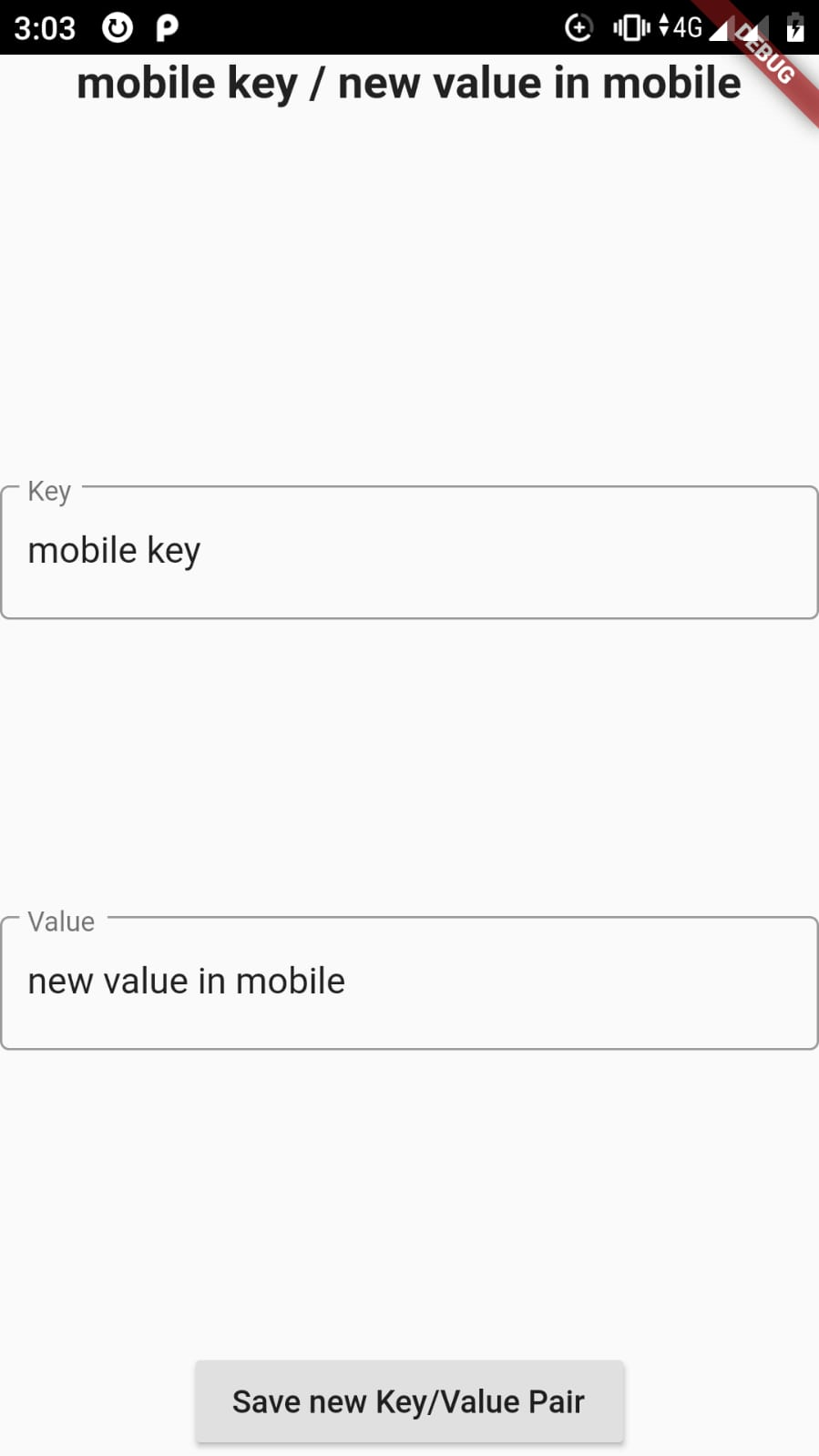Here is my approach to your issue. This is based on the implementations from http package as in here.
The core idea is as follows.
- Create an abstract class to define the methods you will need to use.
- Create implementations specific to
web and android dependencies which extends this abstract class.
- Create a stub which exposes a method to return the instance of this abstract implementation. This is only to keep the dart analysis tool happy.
- In the abstract class import this stub file along with the conditional imports specific for
mobile and web. Then in its factory constructor return the instance of the specific implementation. This will be handled automatically by conditional import if written correctly.
Step-1 and 4:
import 'key_finder_stub.dart'
// ignore: uri_does_not_exist
if (dart.library.io) 'package:flutter_conditional_dependencies_example/storage/shared_pref_key_finder.dart'
// ignore: uri_does_not_exist
if (dart.library.html) 'package:flutter_conditional_dependencies_example/storage/web_key_finder.dart';
abstract class KeyFinder {
// some generic methods to be exposed.
/// returns a value based on the key
String getKeyValue(String key) {
return "I am from the interface";
}
/// stores a key value pair in the respective storage.
void setKeyValue(String key, String value) {}
/// factory constructor to return the correct implementation.
factory KeyFinder() => getKeyFinder();
}
Step-2.1: Web Key finder
import 'dart:html';
import 'package:flutter_conditional_dependencies_example/storage/key_finder_interface.dart';
Window windowLoc;
class WebKeyFinder implements KeyFinder {
WebKeyFinder() {
windowLoc = window;
print("Widnow is initialized");
// storing something initially just to make sure it works. :)
windowLoc.localStorage["MyKey"] = "I am from web local storage";
}
String getKeyValue(String key) {
return windowLoc.localStorage[key];
}
void setKeyValue(String key, String value) {
windowLoc.localStorage[key] = value;
}
}
KeyFinder getKeyFinder() => WebKeyFinder();
Step-2.2: Mobile Key finder
import 'package:flutter_conditional_dependencies_example/storage/key_finder_interface.dart';
import 'package:shared_preferences/shared_preferences.dart';
class SharedPrefKeyFinder implements KeyFinder {
SharedPreferences _instance;
SharedPrefKeyFinder() {
SharedPreferences.getInstance().then((SharedPreferences instance) {
_instance = instance;
// Just initializing something so that it can be fetched.
_instance.setString("MyKey", "I am from Shared Preference");
});
}
String getKeyValue(String key) {
return _instance?.getString(key) ??
'shared preference is not yet initialized';
}
void setKeyValue(String key, String value) {
_instance?.setString(key, value);
}
}
KeyFinder getKeyFinder() => SharedPrefKeyFinder();
Step-3:
import 'key_finder_interface.dart';
KeyFinder getKeyFinder() => throw UnsupportedError(
'Cannot create a keyfinder without the packages dart:html or package:shared_preferences');
Then in your main.dart use the KeyFinder abstract class as if its a generic implementation. This is somewhat like an adapter pattern.
main.dart
import 'package:flutter/material.dart';
import 'package:flutter_conditional_dependencies_example/storage/key_finder_interface.dart';
void main() => runApp(MyApp());
class MyApp extends StatelessWidget {
// This widget is the root of your application.
@override
Widget build(BuildContext context) {
KeyFinder keyFinder = KeyFinder();
return MaterialApp(
title: 'Flutter Demo',
theme: ThemeData(
primarySwatch: Colors.blue,
),
home: SafeArea(
child: KeyValueWidget(
keyFinder: keyFinder,
),
),
);
}
}
class KeyValueWidget extends StatefulWidget {
final KeyFinder keyFinder;
KeyValueWidget({this.keyFinder});
@override
_KeyValueWidgetState createState() => _KeyValueWidgetState();
}
class _KeyValueWidgetState extends State<KeyValueWidget> {
String key = "MyKey";
TextEditingController _keyTextController = TextEditingController();
TextEditingController _valueTextController = TextEditingController();
@override
Widget build(BuildContext context) {
return Material(
child: Container(
width: 200.0,
child: Column(
children: <Widget>[
Expanded(
child: Text(
'$key / ${widget.keyFinder.getKeyValue(key)}',
style: TextStyle(fontSize: 20.0, fontWeight: FontWeight.bold),
),
),
Expanded(
child: TextFormField(
decoration: InputDecoration(
labelText: "Key",
border: OutlineInputBorder(),
),
controller: _keyTextController,
),
),
Expanded(
child: TextFormField(
decoration: InputDecoration(
labelText: "Value",
border: OutlineInputBorder(),
),
controller: _valueTextController,
),
),
RaisedButton(
child: Text('Save new Key/Value Pair'),
onPressed: () {
widget.keyFinder.setKeyValue(
_keyTextController.text,
_valueTextController.text,
);
setState(() {
key = _keyTextController.text;
});
},
)
],
),
),
);
}
}
some screen shots
Web
![enter image description here]()
![enter image description here]()
mobile
![enter image description here]()




localstorageandshared preferencesdependencies in the same method or class. This means the compiler cannot treeshake the either of these dependencies. Ideally the import should hide these implementations. I will try to come up with a clear implementation example. – Brewton